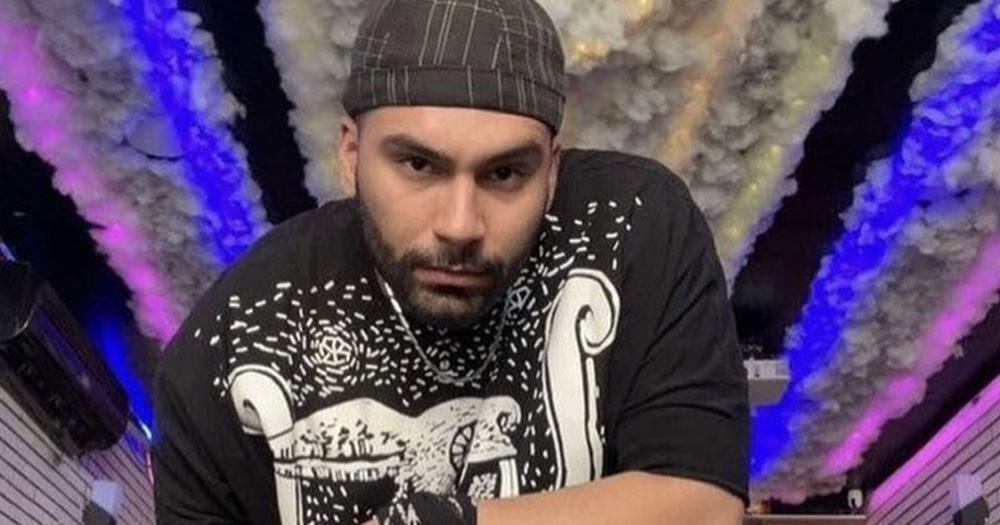There is international concern as reports emerged on Thursday, December 8, saying that the first execution of an Iranian protestor had been carried out. 23-year-old Mohsen Shekari was convicted and sentenced to death in November for street blocking and injuring a paramilitary official. After an appeal from the decision on November 1, the court upheld the ruling on November 20. Reportedly there are at least a dozen other people at risk of the death penalty in connection with the protests that have jolted the regime since September.
Though executions connected to the protests have only begun, according to Iran Human Rights, more than 500 people have been executed in the country this year. Among those executed this year are Mehrdad Karimpour and Farid Mohammadi, two men executed for charges related to homosexuality in January. As well as that, LGBTQ+ activists Zahra Seddiqi Hamedani and Elham Choubdar were sentenced to death in September for “corruption on Earth”.
In a statement released after Shekari’s execution, human rights group Amnesty International says the organisation is “horrified” by news of the protester’s fate from a “grossly unfair sham trial.”
.@amnesty is horrified at today’s execution of protester Mohsen Shekari by Iranian authorities less than 3 weeks after sentencing him in a grossly unfair sham trial. His execution exposes the inhumanity of Iran’s so-called justice system as dozens of others face the same fate. pic.twitter.com/xwZ7lcc8oK
— Amnesty Iran (@AmnestyIran) December 8, 2022
On the same morning that news of the execution broke, dozens of Iranian people living in Ireland and their allies demonstrated outside Leinster House, calling on the government to stand in solidarity with protestors in the Asian country. They also demanded that Iran’s ambassador to Ireland be expelled and that the Islamic Revolutionary Guard Corp be listed as a terrorist organisation.
Minister for Foreign Affairds and Defence Simon Coveney said that a “strong statement” on the matter will come from EU foreign ministers when they meet on Monday, December 12.
“Next week, you will see the EU taking strong and unifies action expanding sanctions to more entities,” he said. “This is unfortunately another example of a brutal response to legitimate protest.
“The EU has already made decisions on two different sanctions packages, but will add to it and there will be a strong statement coming collectively from the EU on Monday in response to what we are seeing in Iran.”
Political leaders worldwide have condemned the Iranian regime for the execution. German Foreign Minister Annalena Baerbock has said that “the threat of execution will not suffocate the will for freedom.” UK Foreign Secretary James Cleverly is outraged by “the abhorrent violence committed by the Iranian regime against its own people,”
The court heard that Shekari had been arrested for injuring a member of the Basij paramilitary with a blade, and the soldier required 13 stitches. According to the Journal.ie, Shekari was convicted of waging “war against God” under Sharia law. On Tuesday, a court sentenced five more people to death for killing a member of the Basij group. This brings the total number of protesters sentenced to death to 11.
#Iran: We deplore hanging of #MohsenShekari – 1st person executed regarding latest protests – & fear for another 11 protesters sentenced to death. We call for immediate halt to executions. Death penalty is incompatible with human rights & cannot be reconciled with right to life.
— UN Human Rights (@UNHumanRights) December 8, 2022
The demonstrations were sparked by the death of Iranian-Kurdish woman Mahsa Amini while in custody. The morality police in Tehran arrested the 22-year-old for an alleged breach of the country’s strict dress code for women. Iran’s morality police, known as Gasht-e-Ershad, mainly enforce laws pertaining to dress, ensuring women are wearing the hijab. Last week, Iran’s Attorney General Mohammad Jafar Montazeri announced the disbandment of the morality police, despite suspicions from rights groups over the motivations of Montazeri.
Some are speculating that the announcement of the morality police’s suspension is a way to deflect public and international attention from the regime’s control. According to The Atlantic, the Attorney General did not clarify whether the decision was approved by supreme leader Ayatollah Ali Khamenei. He did not mention what would happen to further women who appear in public without a mandatory headscarf or hijab.
© 2022 GCN (Gay Community News). All rights reserved.
Support GCN
GCN has been a vital, free-of-charge information service for Ireland’s LGBTQ+ community since 1988.
During this global COVID pandemic, we like many other organisations have been impacted greatly in the way we can do business and produce. This means a temporary pause to our print publication and live events and so now more than ever we need your help to continue providing this community resource digitally.
GCN is a registered charity with a not-for-profit business model and we need your support. If you value having an independent LGBTQ+ media in Ireland, you can help from as little as €1.99 per month. Support Ireland’s free, independent LGBTQ+ media.

comments. Please sign in to comment.